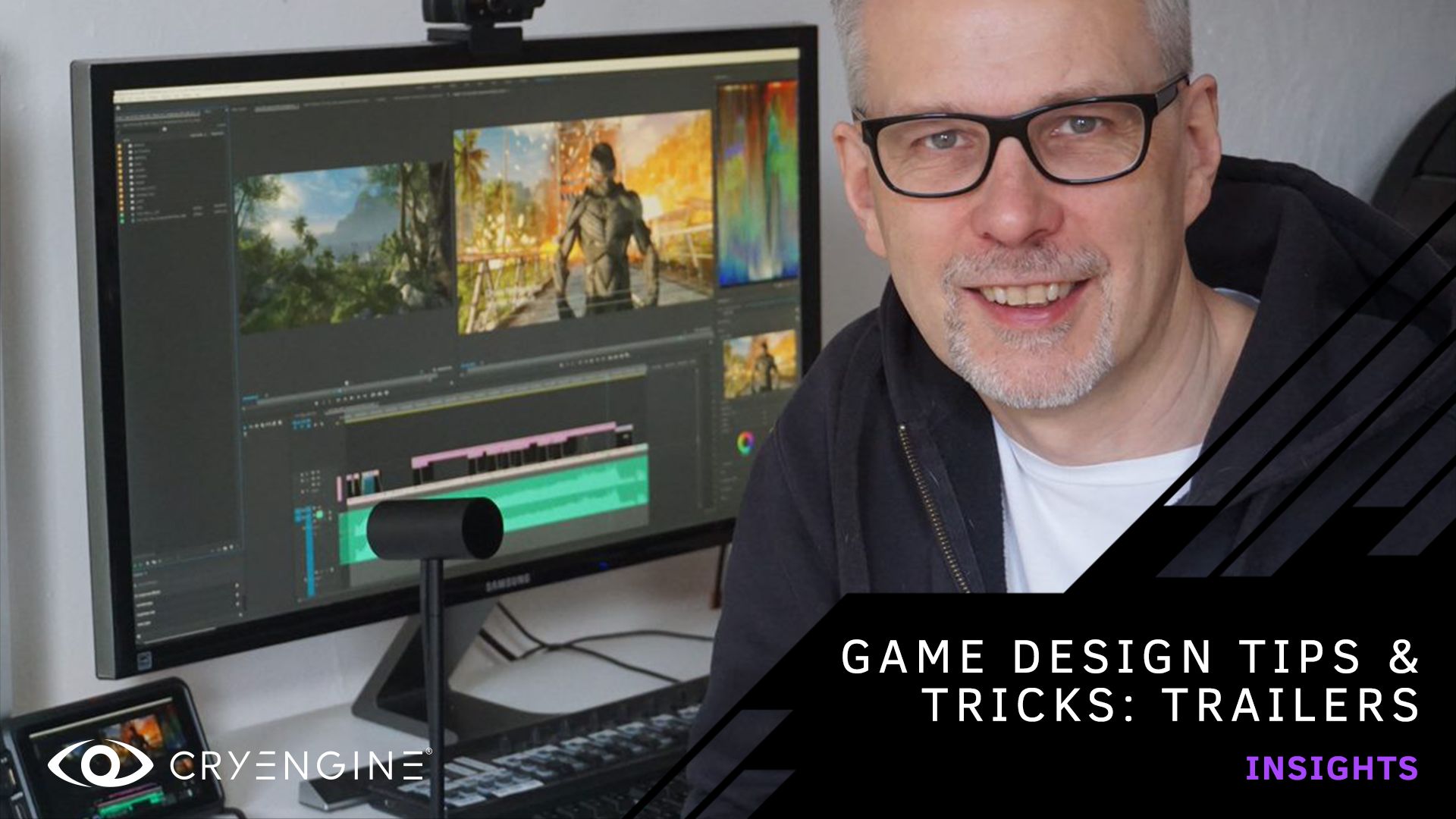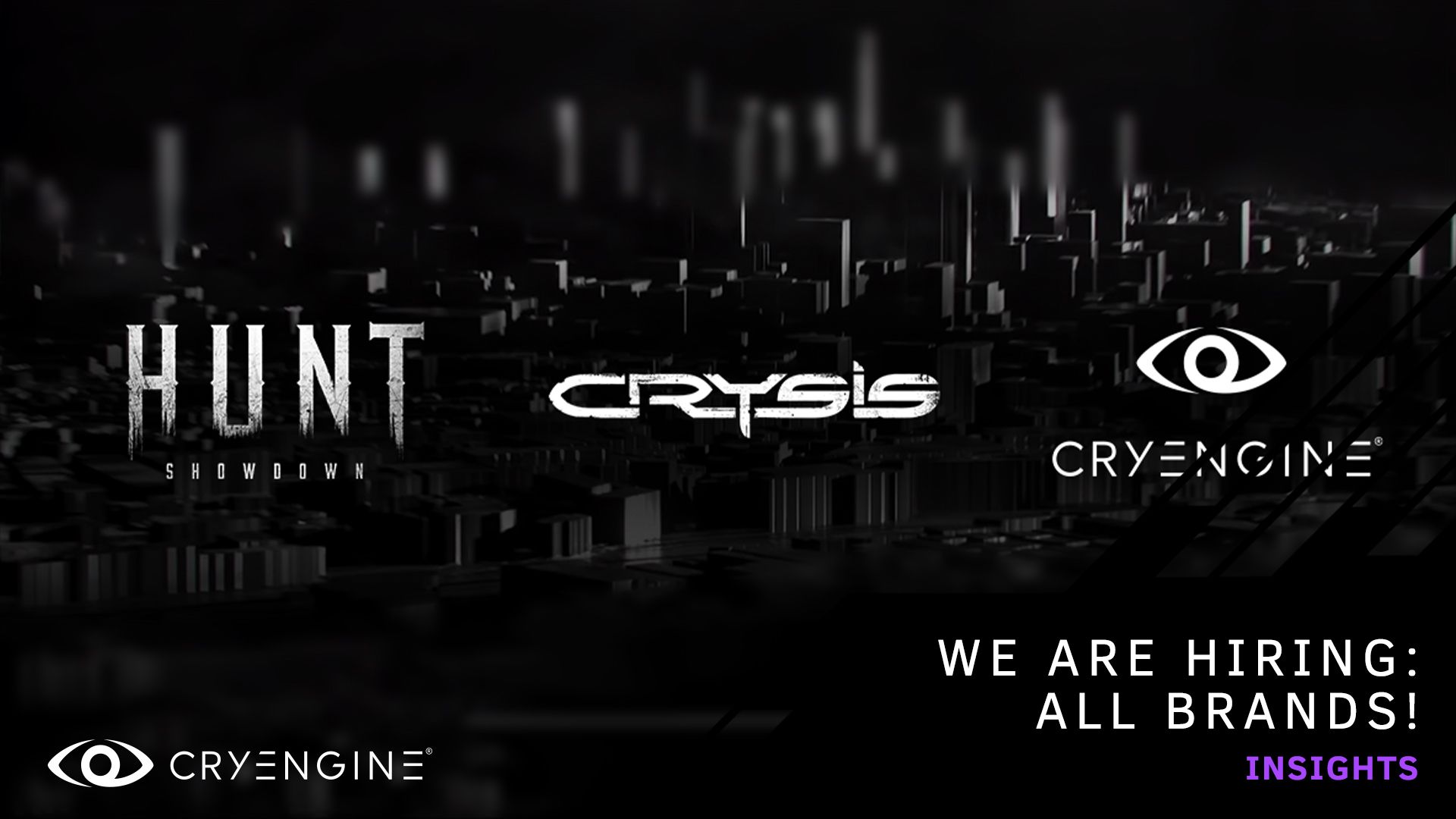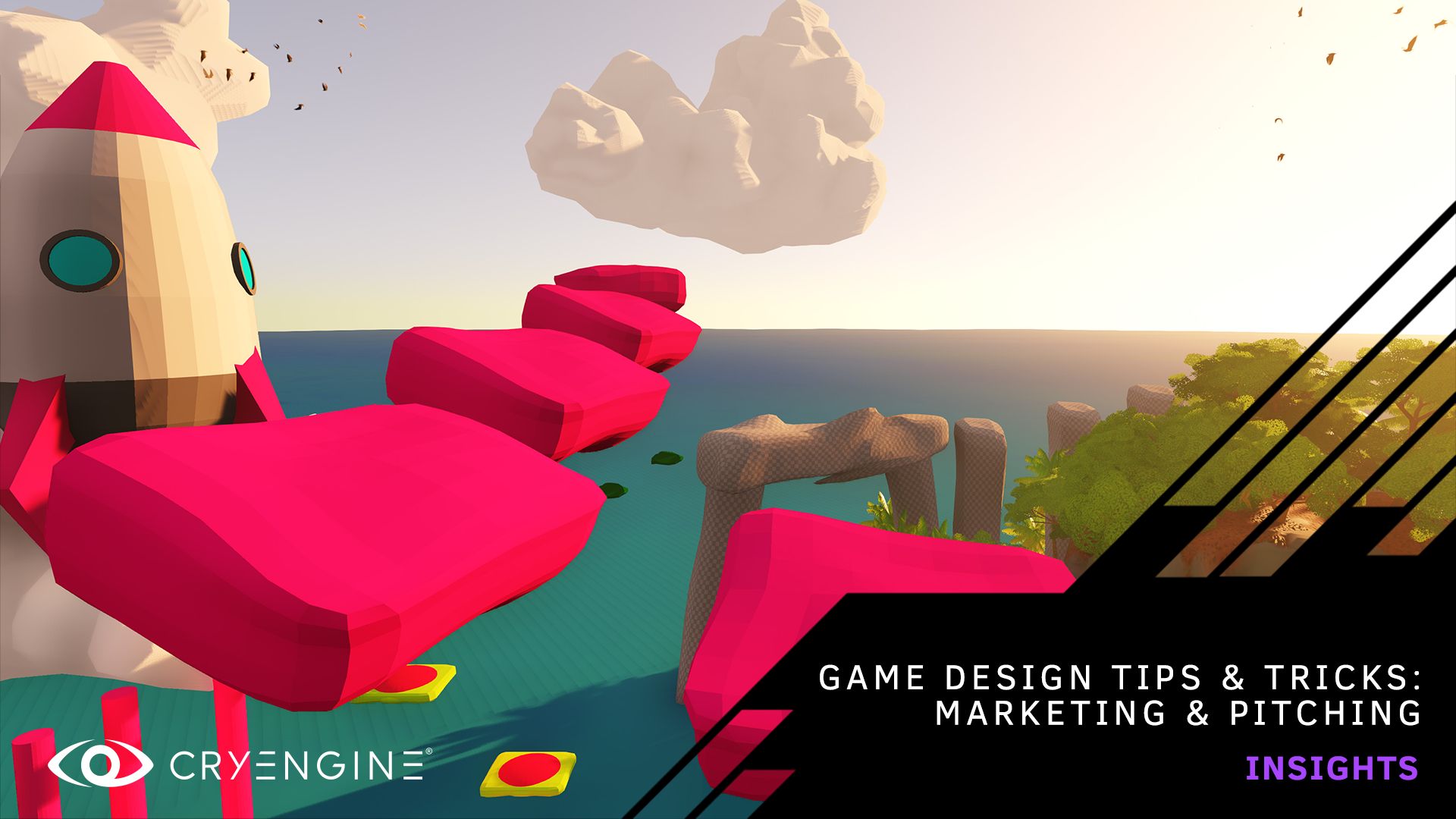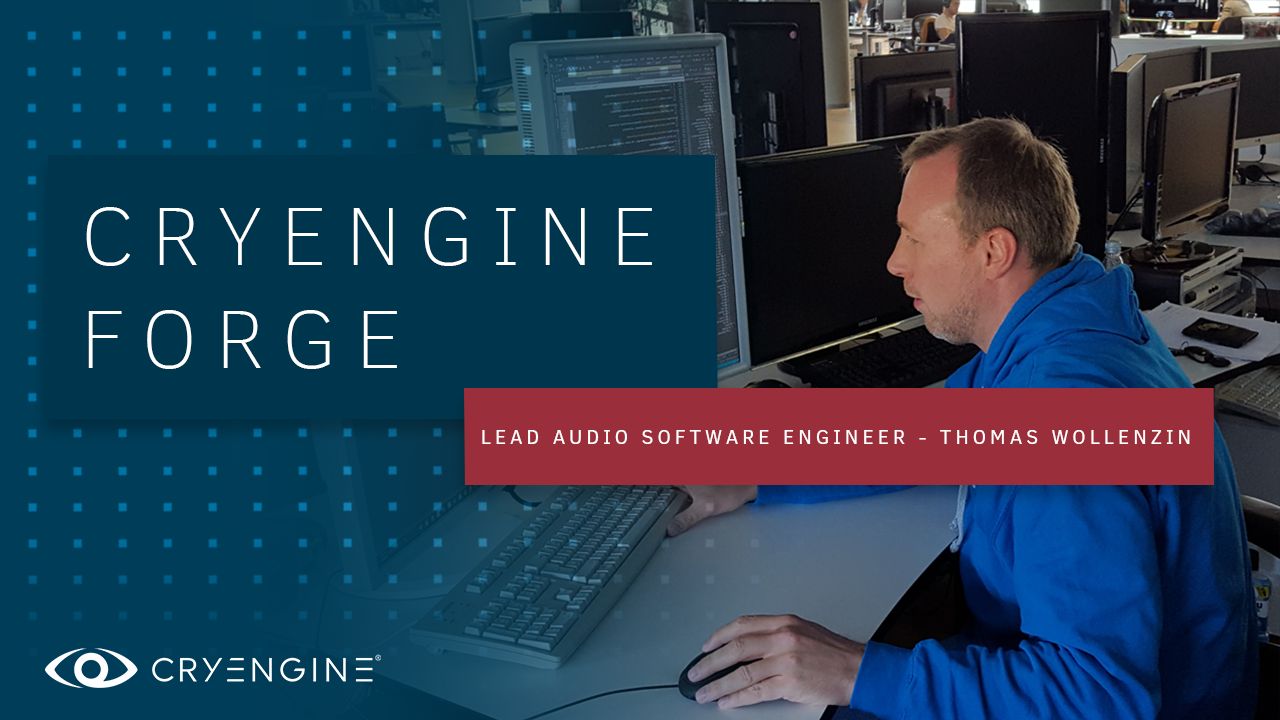
Meet the Team: Thomas Wollenzin, Lead Audio Software Engineer for CRYENGINE
Audio can make or break a player’s immersion in your game. Today, we’re talking to Thomas Wollenzin who works every day to maximize and push forward the audio tools at CryEngineers’ disposal, and he talks about his passion for the subject, gives advice about working with audio and CRYENGINE, and speaks about new features that are coming to the engine in future.

Hey Thomas! Tell us a bit about your background, how did you join Crytek?
I joined Crytek in October 2009 as Junior Audio Engineer in the CRYENGINE R&D department. Shortly after, my lead at that time left the company, and with that I inherited the responsibilities for developing and maintaining CRYENGINE’s audio solution. So, you can say that I’ve been leading this field since almost nine years now!
What is your main focus at the moment?
As CRYENGINE is a product with a licensing and business model attached to it, we have made substantial efforts to improve the production experience and increase flexibility for our users. This is an ongoing effort and we’re trying to widen the range of supported audio middlewares so we can satisfy even more users. Currently we’re working closely with the developers of ADX2 audio middleware to get it fully implemented and production ready for the CRYENGINE 5.6 release.
What’s been your most satisfying moment working with CRYENGINE at Crytek?
In late 2013 I started working on prototypes to evaluate the feasibility of completely revamping CRYENGINE’s audio solution, as I realized that we were kind of stuck in an old philosophy without a sustainable future. In early 2014 we started actual work and threw out the old Fmod Ex based Sound System and implemented the new Audio System, working with abstracting methods to allow for the most flexibility without having to touch code bases or design setups if changes needed to be made. This was quite groundbreaking work, as we couldn’t find other game engines doing it this way. That meant there was no reference and therefore it seemed to be a somewhat risky idea! Because of that I can certainly say that my most satisfying moment was when the first professional game successfully shipped using our new audio solution, which was The Climb. Today, multiple games have been released making use of this new pipeline, including Robinson: The Journey, Kingdom Come: Deliverance, Prey, Sniper: Ghost Warrior 3, Hunt: Showdown, of course, and many more are in the making.
What does a regular day at work look like for you?
Being a parent, I’m usually an early bird now. This means I arrive at work at around 8 a.m. and leave at around 5 p.m. The very first thing I do at work in the morning is, of course, getting a coffee! :D Afterwards, I sync with my teammates on things that we’ve been doing and what to do next. We also discuss how to improve the entire production pipeline, with reference to users. This involves quite a lot of planning and structural thinking to make sure that we make sustainable decisions and focus on the things which are the most beneficial for CRYENGINE and everyone who uses it. Of course, there are meetings I attend each day, and other organizational duties, as I’ve been helping the engine team in the role of a representative on CRYENGINE’s Technical Council. Whenever there’s some breathing room, I like to dive into code and try to help out where I can.
What does it take to do your job well?
From any audio software engineer I expect passion for audio in general. That means understanding its true power and executing on tasks that help sound and audio designers create immersive soundscapes in the most convenient way possible. In CRYENIGNE we do mid-to-high level audio programming, as we rely on audio middleware. For that we are looking for programmers that are strong with C++, able to write rather complex systems, understand abstraction and modularity, pipelines, and data flow. And of course, what is vital in all of our roles is to look out for CRYENGINE’s users, take their feedback seriously, and account for it in future developments.
Have you got any tips for anyone aspiring to work in audio?
It’s rather simple. Love what you do, do what you love, and good things will naturally come to you. I wasn’t born a programmer and worked in very different fields before I landed at Crytek’s CRYENGINE team. I arrived at my current position through hard work and passion. Always be open-minded and keep yourself up to date with the latest developments. Code often and even work on your own little private projects where you can grow and challenge yourself. Be proactive, and ready to take matters into your own hands. Try to be a pilot instead of a passenger!
What are you most looking forward to coming to the engine on the roadmap?
Our current solutions to sound occlusion and reverberation are rather manual and static. It’s enough for most games, but not sustainable going forward. I’m looking forward to when we can natively support real dynamic sound occlusion/obstruction/propagation, and with that dynamic reverberation.
Do you have any tips for people working with audio and CRYENGINE?
We offer quite extensive documentation on audio matters. The audio design team made a big effort to document thoroughly how certain behaviors can be achieved. So, make sure to stop by there. Additionally, there are tutorial videos on CRYENGINE’s YouTube channel. Our forum is a great place, where the community really help each other out and discuss topics. I’ve also seen people posting their own tutorial videos which is great to see. And finally, we hang around in our CRYENGINE Community Discord channel and can help out there.
What are you playing at the moment?
Due to my duties as a father and husband I do not get as much free time as I used to in the past, but whenever I do I like to spend it playing Hunt: Showdown. To be honest, I like to enjoy the soundscape that the audio designers have created, and of course to listen for bugs and any weird behavior. The professional in me can’t stop working. :D, Of course I played countless games in my career, but mostly enjoyed FPS and RTS games. Single player games like Half-Life and Far Cry really stuck with me. As for multiplayer, I spent most time playing Counter-Strike and Kingpin: Life of Crime. I’m really hoping to see a sequel to Kingpin one day :D.
Thanks Thomas!
If you want to love what you do like Thomas, why not check out our open positions? Crytek is recruiting at all levels, across all disciples, so whether you’re looking for an internship or you have years of experience in game dev, we’d love to hear from you. Don’t forget to check out more of our Meet The Team features, including Chris Bigus, Technical Support Specialist, C# Programmer Michael Bosschert, and Technical Artist Danny Man. As ever, we look forward to your feedback on Discord, the forum, and on our Facebook, and Twitter channels.


